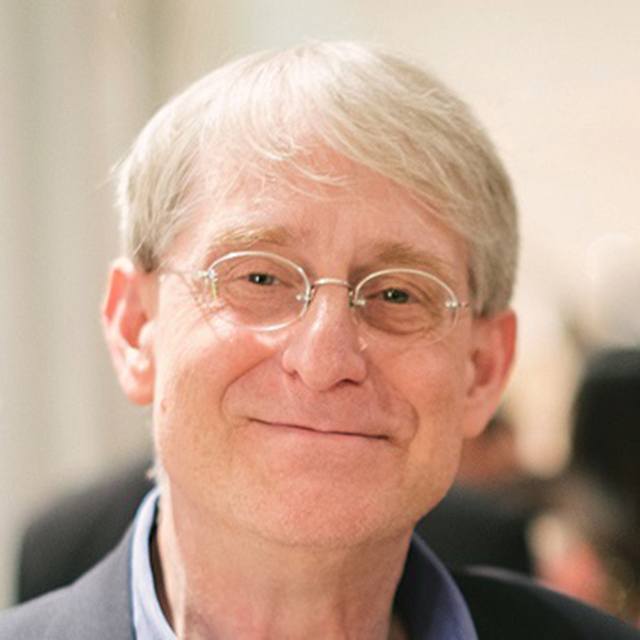[quote style=”boxed”]Seek the perspectives of others. Surrounding yourself with a diverse set of smart people is really important. Some of these people will be within your organization, others will be outside of it.[/quote]
Erik is the President of NYTECH, a membership-driven, 501(c)(6) non-profit organization focused on developing and promoting the technology industry in New York City. He has been active in the technology community for over thirty years. He worked at Bell Laboratories as a researcher and systems engineer, on the business side of AT&T where he served as AT&T’s Internet strategist, and as a Senior Vice president of Dun & Bradstreet. For the past twelve years he has been involved with a variety of startups including Cometa Networks and Send Word Now.
Where did the idea for The New York Technology Council come from?
NYTECH was founded in 2009 by Donn Morrill. He felt that the New York technology scene needed an organization to help bring people together to share their insights and knowledge with each other. Donn had seen a previous organization, the New York Software Industry Association, serve a similar need while it was in existence. I joined the Council shortly after it was formed and become its Chairman a year later. Almost two years ago Donn accepted a great position with Amazon Web Services; at the point he and I swapped roles in NYTECH. He’s now our Chairman and I’m President and CEO.
What does your typical day look like?
On a typical day I’ll spend time on email, work on a policy position piece, meet with individuals, companies, and other non-profit organizations, and/or attend a tech-related event
How do you bring ideas to life?
We bring ideas to life by organizing events, typically panel discussions or single-speaker talks.
What’s one trend that really excites you?
I’m excited by the increasingly collaborative nature of the New York technology scene.
What is one habit of yours that makes you more productive as an entrepreneur?
My most productive habit is enlisting the help of others as much as I can. As a non-profit organization we rely heavily on volunteers.
What was the worst job you ever had and what did you learn from it?
My worst job was CTO of a startup about 15 years ago. It was the first startup that I had been part of; in fact it was the first startup that anyone in the startup had been part of. We had the misfortune of making a large sale early, well before the product was ready. This sale gave us a false confidence and caused us to ignore lots of negative news. It turned out that this was the only sale that we ever made. I learned that one must be brutally honest in a startup. We should have failed fast. Instead we failed painfully slowly.
If you were to start again, what would you do differently?
With NYTECH I wouldn’t do much differently if we were to start over.
As an entrepreneur, what is the one thing you do over and over and recommend everyone else do?
Seek the perspectives of others. Surrounding yourself with a diverse set of smart people is really important. Some of these people will be within your organization, others will be outside of it.
What is one strategy that has helped you grow your business/organization?
We’ve grown NYTECH by having a good “product” and generating positive word-of-mouth. We’ve then amplified that positive buzz using social media and good old fashioned PR.
What is one failure you had as an entrepreneur, and how did you overcome it?
Back before there was TurboTax or any similar product, I wrote software to do my own taxes. If I’d been smart enough to realize that there’d be a market for such a product, my bank account would be very different that it is today. Missing an opportunity such as that one is not something that you can overcome. Most big ideas have only one opportune moment. If you’re not the one ready to take advance of the opportunity, someone else probably will be.
What is one business idea that you’re willing to give away to our readers?
I wish I had a really good idea to share, but at the moment I don’t.
Tell us something about you that very few people know?
Many years ago I ran an organization at Bell Labs that was responsible for figuring out what would happen to the phone network following a limited nuclear attack.
What software and web services do you use?
I’m not sure I should admit it, but Excel is my favorite software. I love modeling things and there are few things that can’t be modeled using Excel, especially since it’s now a 64-bit application. Of course there are still lots of things in Excel that could be improved upon.
What is the one book that you recommend our community should read and why?
I’ve recently read “The New Geography of Jobs” by the economist Enrico Moretti. It’s a fascinating analysis of how human capital and innovation are the basic sources of economic development.
What people have influenced your thinking and might be of interest to others?
As the AT&T Internet strategist starting in 1991, I had the good fortune of meet and, to a slight extent, work with many of the original inventors of the Internet. They did a remarkable job of finding elegant solutions to the challenges in front of them. It’s a great lesson in problem solving by a good-sized group of people. It was a loosely coupled group that came up with a loosely coupled system. I credit the Internet with greatly facilitating the parallelization of innovation.
Connect:
NYTECH on LinkedIn:
NYTECH on Facebook:
NYTECH on Twitter: @nytechcouncil
Mario Schulzke is the Founder of ideamensch, which he started a decade ago to learn from entrepreneurs and give them a platform for their ideas.

